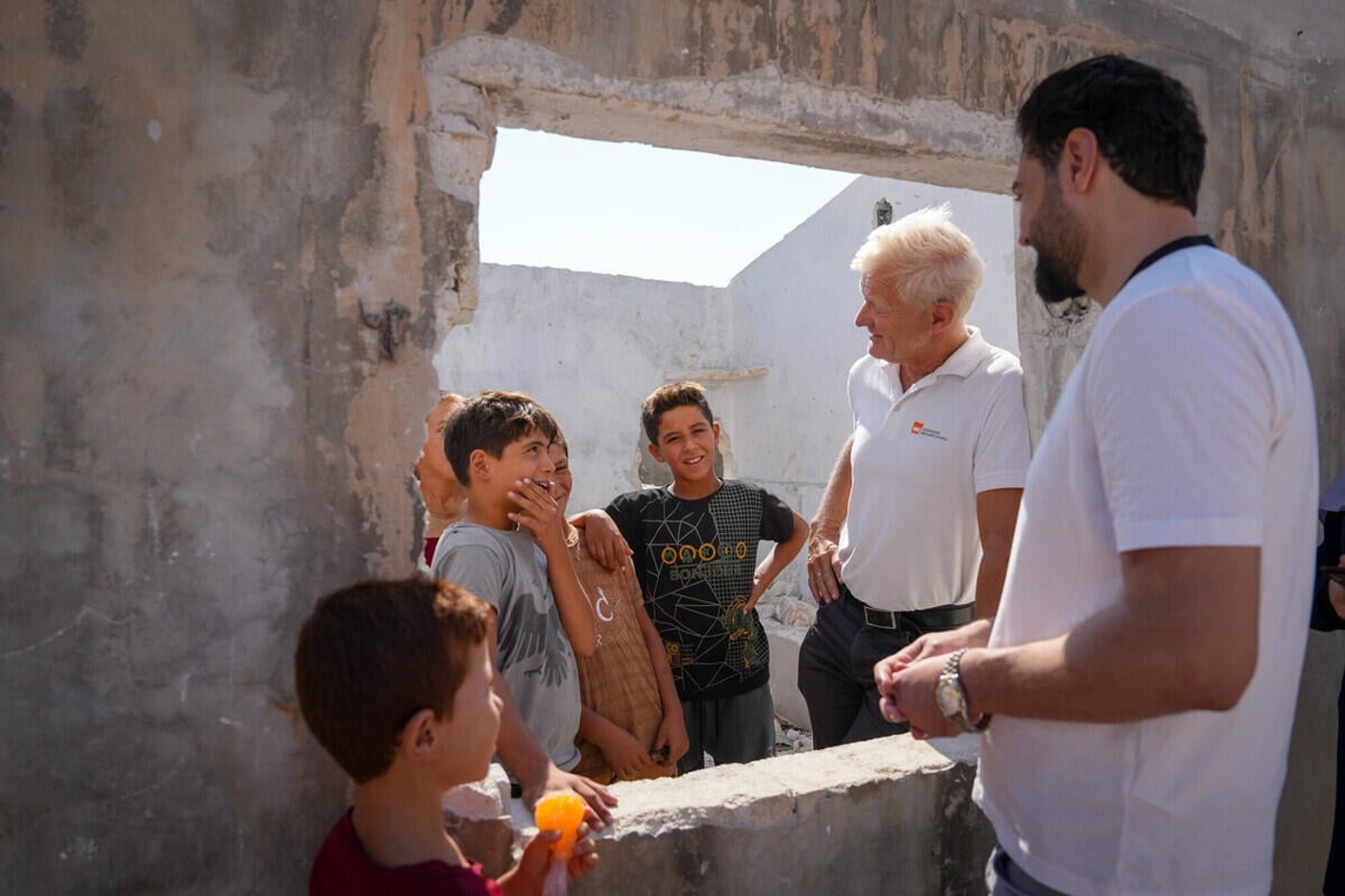“As I again visit Syria, I see thousands of families returning to their original communities, from within the country and from neighbouring countries. These are people brimming with ideas and hope after a decade of misery. But incredibly there is hardly any assistance to help people rebuild lives, homes and livelihoods after years of investments in emergency relief efforts when return was only a dream. The international community cannot fail Syrians now, with recovery so close at hand,” said Egeland.
“Across the country, the destruction stretches as far as the eye can see. I met with families who have returned from displacement camps to find nothing left of their homes: no walls or doors, no electricity, no clean water, and no job to be able to pay for repairs. This is no way to return, and this is no way for Syria to rebuild. This is the moment we all have been longing for, when we can support Syrians with the aid and investments needed to rebuild homes, schools, hospitals and roads. We cannot fail them now.”
With more than 800,000 people having left camps across Syria to go back home, the pressure on areas of return has increased dramatically. Assessments by NRC show that people are returning to large-scale infrastructure damage, an absence of basic services such as education and electricity, and disputes over home ownership. The resulting competition over resources has contributed to local conflicts among community members in villages and cities. Local tensions are being exacerbated by the insufficient services available to those trying to rebuild their lives.
“Millions of refugees and internally displaced people can now return to their original homes, but they cannot and will not if there is no support to rebuild homes, schools, clinics, or water and electricity supplies,” said Egeland.
“The displaced people I met in camps in Idlib said they are longing for the day they can return to their communities. They asked, ‘why can you not help us to rebuild?’. I think that Europe, the US, and the Gulf countries would be making an enormous strategic mistake if they do not now invest in solving one of the world’s largest refugee and displacement crises. We in NRC have proven that we can rebuild communities for those returning from both camps in Syria and from abroad. But we have been surprised to see how hard it is to find funding for these durable solutions.”
While some Syrians are choosing to return from areas of displacement and neighbouring countries, others are not ready or able to do so. Making informed and voluntary decisions will be vital to people’s future and ability to integrate where they are. Host countries, which have shouldered the responsibility for millions of Syrians for over a decade, must be supported so that deteriorating conditions or aid funding cuts do not force people back prematurely.
The recent hostilities and outbreaks of horrific localised violence have in some places caused new displacement. In Sweida, south of the country, recent fighting has driven 192,000 people out of their homes, mostly to neighbouring Dara’a, but even as far as Idlib. NRC teams reported urgent needs for shelter, clean water, healthcare and food.
“The latest displacement emergency in the south is a stark reminder that safety guarantees and protection for all communities must be at the centre of all recovery efforts. People fled as their homes were burnt down, with some seeking refuge in camps 400 kilometres away in the north,” said Egeland.
NRC urges donors to invest in long-term recovery projects, including reconstruction of civilian infrastructure and homes.
Notes to editors:
- Photos and B-roll of the trip and conditions on the ground are available for free use here
-
As of 18 August 2025, nearly 2.5 million Syrians inside and outside the country have returned home since 8 December. These include 779,473 Syrians who have returned from abroad. In addition, 1.7 million internally displaced persons (IDPs) have returned to their homes since 8 December, including more than 800,000 from IDP sites (UNHCR).
-
Nearly 192,000 people are internally displaced since the beginning of clashes in Sweida (UNICEF).
-
NRC works across the country to provide shelter, water and sanitation, education, livelihoods and legal support for all communities.
-
Only 414 million out of 3.2 billion US Dollars required for the Syria humanitarian response for 2025 has been funded. (OCHA financial tracker)
For more information or to arrange an interview, please contact:
-
NRC global media hotline: media@nrc.no, +47 905 62 329
-
Ahmed Bayram, Middle East media adviser, ahmed.bayram@nrc.no, +962 790 160 147


